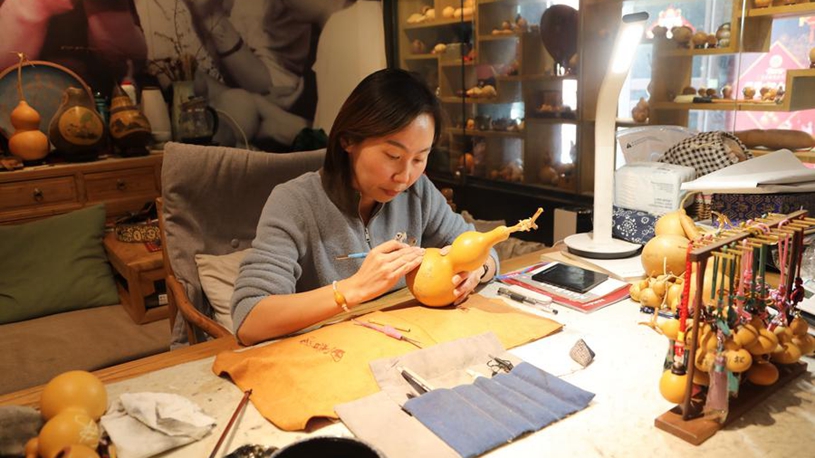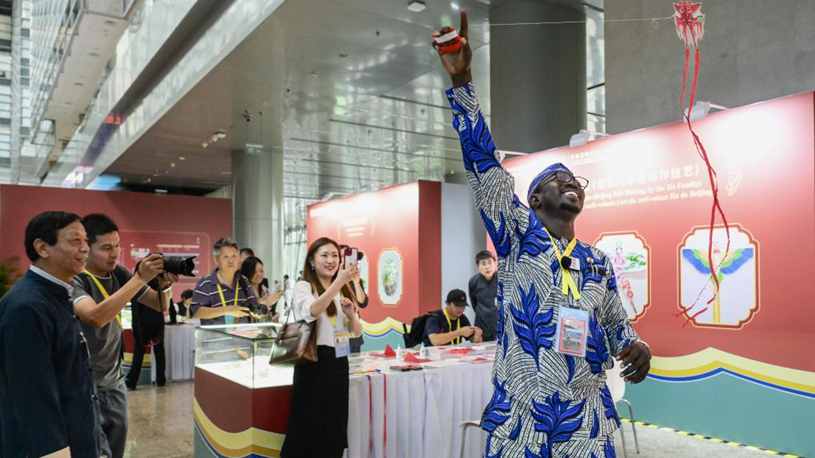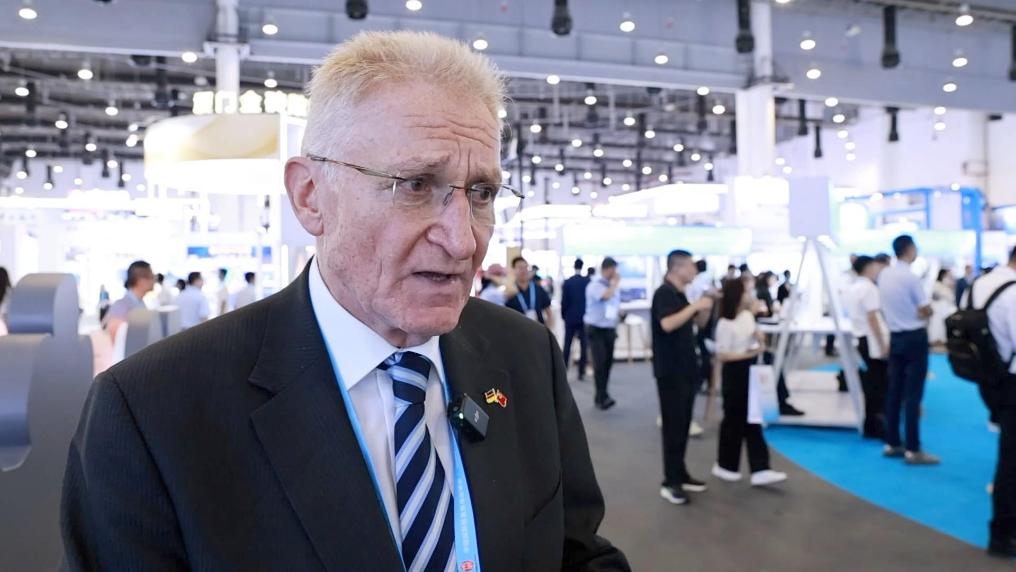"The desire among students and Saudi society to learn Chinese is growing by the day," noted Ghrmallh Al Zahrani, director of Al Waleed bin Ubadah Middle School.
RIYADH, Sept. 10 (Xinhua) -- Taim Mohamed Ekrema, a 12-year-old student at Al Waleed bin Ubadah Middle School in Saudi Arabia, could barely hide his excitement. After years of studying Chinese online, he was finally attending his first in-person Chinese class.
Ekrema is part of a growing wave of Saudi students embracing Chinese language education, a trend that reflects the deepening ties between Saudi Arabia and China.
In 2023, China and Saudi Arabia reached an agreement to enhance cooperation in Chinese language education. Following this agreement, Saudi education authorities incorporated Chinese language education into the curriculum of primary and secondary schools.
Beginning in August, the first batch of 175 Chinese language teachers arrived in Saudi Arabia to kick off Chinese education. At Al Waleed bin Ubadah, where Ekrema studies, the school rolled out the red carpet for its first Chinese teacher.
"The desire among students and Saudi society to learn Chinese is growing by the day," noted Ghrmallh Al Zahrani, director of Al Waleed bin Ubadah Middle School. "The Chinese language is one of the world's major languages," Zahrani added, noting that "due to cultural and societal exchanges between Saudi Arabia and China, there is growing interest in it here."
In the classroom, Shi Xiao, who graduated from China's prestigious Sichuan University with a master's in Chinese International Education, was instructing students on everyday Chinese expressions. Below the lectern, Ekrema and his classmates listened intently, jotting down notes.
"I love China," Ekrema told Xinhua after class. "It is a beautiful country, and its culture is attractive." The enthusiasm of the Saudi students for the Chinese language and culture left a strong impression on Shi.
After the lesson, he found himself surrounded by eager students. Ekrema and his classmates inundated Shi with a flurry of questions about China, a distant land they longed to understand.
"I'm truly touched by the enthusiasm of the students here," said Shi. "Whenever they encounter me in the school, they try to greet me in Chinese."
In recent years, the relationship between Saudi Arabia and China has flourished, marked by increasingly rich cultural and people-to-people exchanges. The Saudi interest in the Chinese language epitomizes this burgeoning connection.
As early as 2022, four universities in Saudi Arabia had already established Chinese language programs. By 2023, the country launched its first Confucius Institute at Prince Sultan University in Riyadh.
According to Zhang Xinying, the Chinese director of the Confucius Institute at Prince Sultan University, since its inception just over a year ago, enrollment at the institute has surged, with the number of Saudi students studying Chinese this semester tripling compared to the previous one.
"We aspire to showcase the charm of the Chinese language and culture to the people of Saudi Arabia," Zhang told Xinhua. For the Saudi youth, learning Chinese transcends the mere acquisition of a new language; it unlocks a realm of opportunities.
"When you learn a new language, it opens doors to new information," said Yousef Al Shaikh, a student at the Confucius Institute at Prince Sultan University. "Learning Chinese has opened a new gate to an amazing culture for me."
Nowadays, the streets of Saudi Arabia are bustling with an increasing number of Chinese people. For Al Shaikh, diving into the world of Chinese not only sharpens his ability to connect with the Chinese as the ties between their countries tighten but also enables him to experience the rich tapestry of Chinese culture on a deeper level.
"Learning Chinese indeed represents opportunity," he said. "I have decided to pursue my PhD in China." ■











